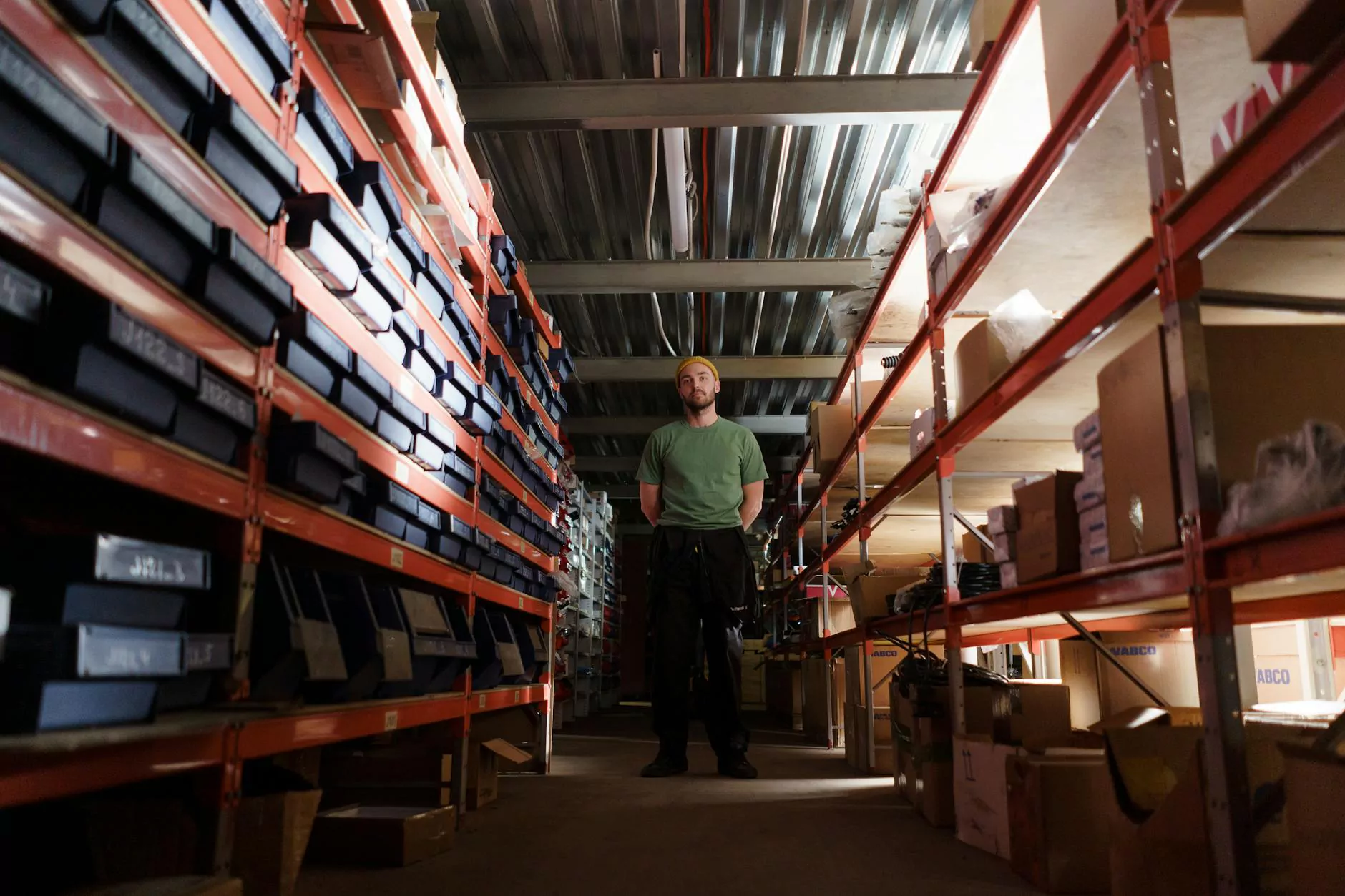Mastering Business Logistics with abf ltl tracking: A Comprehensive Guide to Shipping, Tracking, and Business Growth

In today's rapidly evolving market landscape, efficient logistics and supply chain management are crucial drivers of business success. Among the many facets of modern logistics, abf ltl tracking plays an indispensable role, especially within sectors like shipping centers, business consulting, and vehicle shipping. This detailed guide aims to demystify abf ltl tracking—its significance, functionalities, benefits, and how it can propel your business into greater operational excellence.
Understanding abf ltl tracking: The Foundation of Effective Freight Management
To fully appreciate the power of abf ltl tracking, it’s essential to understand the core components involved:
- ABF: Typically refers to American Backhaul Freight or may relate to specific freight carriers or logistics companies that utilize freight tracking systems.
- LTL: Stands for Less Than Truckload, a freight classification where shipments that do not require an entire truck are consolidated to optimize space and cost-efficiency.
- Tracking: The process of monitoring shipment status, location, and estimated delivery times through digital systems that provide real-time updates.
Combining these elements, abf ltl tracking is a comprehensive system that allows shippers, logistics providers, and recipients to monitor less-than-truckload shipments managed by specialized carriers, especially those associated with ABF Transportation and similar logistics enterprises.
The Significance of abf ltl tracking in Modern Logistics
1. Enhancing Visibility and Transparency
One of the fundamental advantages of abf ltl tracking is providing unparalleled visibility into the entire shipping process. Businesses can access real-time data on shipment locations, transit status, and expected delivery times. This transparency fosters trust among partners and clients, reducing uncertainties that often slow down supply chains.
2. Improving Shipping Efficiency and Reliability
Accurate tracking allows logistics providers to optimize routes, anticipate delays, and allocate resources effectively. For example, with abf ltl tracking, a shipping center can swiftly respond to unforeseen challenges like traffic congestion or weather disruptions, maintaining high reliability standards.
3. Reducing Costs and Enhancing Customer Satisfaction
By minimizing delays and optimizing freight loads, abf ltl tracking helps in reducing operational costs. Furthermore, timely updates and proactive communication improve customer satisfaction, fostering long-term loyalty and repeat business.
The Role of abf ltl tracking in Shipping Centers
Streamlining Operations for Shipping Centers
Shipping centers act as critical hubs where freight consolidates before dispatch. Integrating abf ltl tracking into their operations streamlines the entire workflow by:
- Enabling real-time monitoring of incoming and outgoing freight
- Facilitating route planning and delivery scheduling based on live data
- Enhancing communication between drivers, warehouse personnel, and customers
Optimizing Inventory Management
With detailed tracking data, shipping centers can anticipate inventory needs more accurately, reduce storage costs, and prevent stockouts. This seamless flow of information fosters more responsive and flexible logistics strategies.
Leveraging abf ltl tracking in Business Consulting
Driving Data-Driven Decision Making
Business consultants specializing in logistics leverage abf ltl tracking data to advise companies on optimizing their supply chain strategies. They analyze shipment patterns, delays, and cost metrics to recommend tailored improvements that enhance efficiency and profitability.
Supply Chain Risk Management
Real-time tracking data provides vital insights that help identify potential disruptions early. Consultants can develop contingency plans, recommend alternative routes, or adjust delivery schedules to mitigate risks effectively.
Transforming Vehicle Shipping with abf ltl tracking
Ensuring Safe and Secure Transport of Vehicles
Vehicle shipping requires meticulous coordination. abf ltl tracking enables transport companies to:
- Monitor vehicle locations throughout transit
- Notify clients promptly about delivery status
- Coordinate pickups and drop-offs efficiently
Reducing Liability and Damage Risks
With continuous oversight, any issues such as route deviations or delays are quickly identified, allowing for swift intervention. This proactive approach minimizes risks of vehicle damage or loss, boosting client confidence.
Technological Aspects of abf ltl tracking
Advanced Tracking Technologies
Modern abf ltl tracking systems utilize GPS, RFID, IoT sensors, and cloud-based platforms to offer:
- Real-time GPS tracking: Precise location data of freight
- Sensor data integration: Monitoring temperature, humidity, or vibration for sensitive cargo
- Automated alerts: Notifications about delays, route deviations, or other anomalies
- Mobile access: On-the-go monitoring via smartphones or tablets
Integration with Existing Logistics Software
Seamless integration of abf ltl tracking with enterprise resource planning (ERP), transportation management systems (TMS), and warehouse management systems (WMS) ensures a unified logistics ecosystem, maximizing operational efficiency.
Choosing the Right abf ltl tracking Solution for Your Business
Key Factors to Consider
- Compatibility: Integration with existing platforms and hardware
- Real-time Capabilities: Speed and accuracy of data updates
- Ease of Use: User-friendly interfaces for staff and clients
- Scalability: Ability to grow with your business needs
- Customer Support: Reliable technical assistance and training
Partnering with Experienced Providers
Choose vendors that have extensive experience in logistics tracking, particularly those specialized in less-than-truckload (LTL) freight and familiar with ABF operations. Such partnerships can significantly boost your supply chain's efficiency and reliability.
Future Trends in abf ltl tracking and Logistics
Artificial Intelligence and Machine Learning
AI-driven analytics will increasingly predict delays, optimize routes dynamically, and provide actionable insights, further refining abf ltl tracking capabilities.
Blockchain for Supply Chain Transparency
Blockchain technology promises enhanced security, transparency, and traceability of freight data, making abf ltl tracking even more trustworthy.
Enhanced Customer Engagement
Augmented reality (AR) and improved mobile applications will offer clients more interactive and informative tracking experiences, fostering greater satisfaction and loyalty.
Conclusion: Elevate Your Business with Effective abf ltl tracking
In conclusion, mastering abf ltl tracking is vital for modern businesses operating in shipping, logistics, vehicle transportation, and consulting. It empowers companies to achieve higher operational efficiency, reduce costs, improve customer service, and adapt swiftly to challenges. By leveraging advanced technology and strategic partnerships, your business can gain a competitive edge in today’s complex supply chain environment.
Whether you are managing shipping centers, providing business consulting, or orchestrating vehicle shipping services, integrating a robust abf ltl tracking system is a decisive step toward sustainable growth and excellence in logistics management.
Ready to optimize your logistics operations? Discover more innovative solutions at freightrate.com — your trusted partner in freight and logistics excellence.









